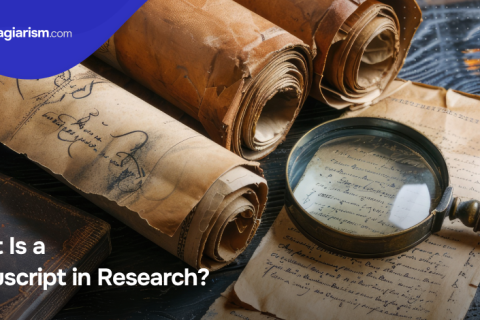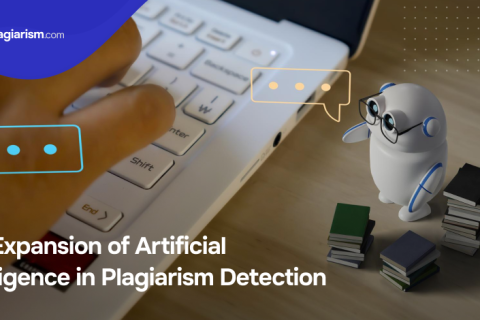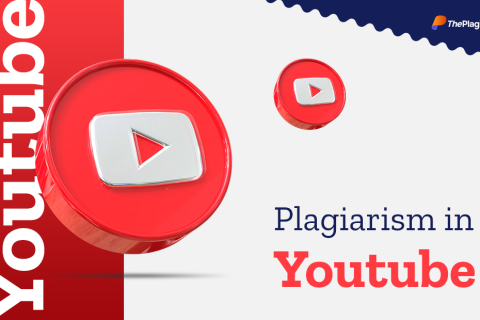Why to Use Citations in Academic Writing
18 Jan 2022

Academic writing cannot be fancied without quotes and referencing. No researcher will actually doubt the need in proper citing, but the students not fully aware of how to cite sources may sincerely wonder about why they should bother. They truly believe that the fact of getting the right answer is more important than the method of obtaining information they needed. So, in the first weeks or months of studies, they get accused for plagiarism in their papers. For sure, the consequences of such careless attitude to academic integrity are gross and students look puzzled and taken aback by such an outrage. What is citing sources? Threats of punishments make this question gain special importance for them and they look much closer at the issue of citing from the perspective of ethics and common sense. So, do you use citations just to follow the accepted requirements and avoid potential punishments and issues with plagiarism?
How Do Citations Work? Key Reasons Why They Are Needed
There are numerous grounds for using citations in writing, but they can be summarized in the following brief list:
- You do justice to the original authors of the used sources.
- ou let your readers know about the sources and enable them to get more information from there if needed.
- You demonstrate credibility of the written text. You make the text original without any traces of plagiarism in the content.
Getting More Advanced in Making Arguments
A student might care about how to properly cite a source only because there is a strict guideline on the assignment to use two, three, or more books or articles. How is this citing generally done? Getting some argument, one merely googles for an idea formulated in similar words and inserts it without any special attention paid to the context or background in that source. Still, the teachers want every student to know the answer to the question ‘What is a citation?’ to let them enhance their thinking and expand knowledge of the question to cover.
Thus, citing sources in research paper should take place not at the stage of actual writing or even editing, but as early as brainstorming. Working on the first draft, a student can try to respond to the source he has found and then move to his own ideas on the topic. Therefore, a new research will look not devoid of context but based on previous attempts to study the raised issues. Beginners are often scared of referring to other sources as they believe that it is a sign that their own work is not original. They want to focus on their own conclusions and contribution to the development of the topic, not the impact of other researcher. Getting more experienced, they realize that acknowledgement of sources only adds value to their own opinions. In academic writing, absolute innovation and originality makes little sense as it should be interchanged with other discoveries and investigations to look valid and meaningful.
Giving Due Credit to Other Authors
‘Should I always cite my sources in my papers?’ This common students’ question shows general misunderstanding about the necessity to pay tribute to others. For sure, your work can be great! However, at least partly, it should be related to the previous conclusions drawn in the same area of studies. They were made by smart people who spent their time, exerted effort, and showed diligence and persistence in their work. You accept what they have done; thus, you demonstrate that your own ideas are developed owing to the previous revelations and insights. Isn’t it a valid reason to give due credit to researchers and show that you value what they have done?
Learning how to cite a quote, you get to know how to be respectful to others and how to acknowledge the efforts others have done. Your readers will get acquainted both with your ideas and the actual background for them. Thus, they will be encouraged to find out more and get extra reasons to appreciate your contribution in line with the expertise of the previous researchers.
There is one more rather selfish reason why showing your diligence and knowledge how to cite sources in an essay you can make sure that your mistakes will look not that serious. All writers mess up in their papers at least once. What are citations in writing? They are your lifesaving ring which illustrates the source for a misinterpretation or fault, if any. The readers will attribute all ideas to you if you do not mention other relevant research. You take full responsibility for every conclusion by default. However, you can show your progress, give due credit to others, and protect yourself from negligence by mere referencing! So, why not to try that?
Creating a Context of Debate and Intellectual Challenge
‘I find it difficult to cite my source apa.’ ‘Using Harvard turns writing into nightmare!’ These are generally complaints of the first-year students who understand that they need to get information for their own research, but it is not clear for them how to make that properly. Learn the basic rules of using different referencing styles and have the guidelines somewhere within touching distance to consult them when needed. Thus, you will be a part of an intellectual conversation on a topic, not the only voice that is trying to make statements out of thin air. Incorporate not only quotations which give support to your opinions. Instead, refer both to the sources which present a different idea and those with which you agree. Hence, you will create a framework that is dynamic and involving for your readers, who will get an insight into the implications of your ideas.
You should acknowledge that academic writing is based on collaborative work. So, applying your knowledge of how to quote an article in an essay, you make sure that you build your paper on the previous solutions. There is no need to make inventions from scratch and the ideas on how to make a reference page will let you extend your work and enhance its value considerably. Your audience will refer to the list of sources to get to know how they can explore the ideas you have presented as your own and that is the only right way to join the environment of knowledge and progress in studies.
Citations are not only about ethics in writing! They are about you as a proficient writer!
- Stay out of trouble!
- Give more strength to your ideas!
- Make your research look solid!
- Ensure clarity in your thoughts!
- Improve and develop!
These are the reasons why next time you are working on your paper, you should not forget to pay due attention to citing all the sources you used.






